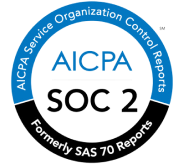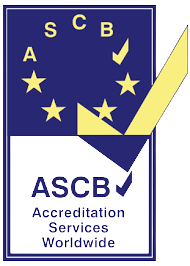Table of Content
Introduction
Managers, too, tend to get worked up the most, especially in the HR department. They are dealing with multiple KPIs at once, from pre-hiring to post-retiring. There is literally a lot on their platter when it comes to completing their tasks with complete precision and empathy. The two extremes of their approaches have them in confusion all the time. That’s why these people are more prone to burnout episodes. So, as a people manager and culture policy in your organisation, you need to find a way of breaking the burnout cycle for managers.
Do it easily when you have intelligent, empathetic, and flexible HRMS software in place. Having such a tool can be a blessing for the entire organisation because it will bring more autonomy, independence, and clarity as to who will be reporting to which person for which task or project. So, pay attention to the content below, as it will help you decide on the purchase of cost-effective HR management software shortly.
Want to skip the post?

How to initiate breaking the burnout cycle for managers with HRMS?
- Help managers automate their mundane tasks.
HR managers have literally too much to perform, complete, and follow up on at any given time. Automating their administrative tasks can help them ease their workload.
Tools like AI Suggest, CV Parser, automated workflow engine, chatbots, and HR calculator help them make strategic and data-driven decisions in a zap.
With AI Suggest by uKnowva HRMS, they can complete lengthy, boring, but mandatory tasks like creating job description templates, KRA templates, probation confirmation module templates, salary templates, etc., in seconds.
This saves at least hundreds of manual working hours for every HR manager, which they can invest in other critical tasks for exponential growth and output.
- Assign tasks to your team according to their availability.
Help HR managers to delegate mundane, tedious, and laborious tasks to their team members. That is possible with a task, timesheet, and project management module.
Team managers or leaders will have complete control over their team members' task sheets. They can then focus on more human, analytical, and critical tasks at hand.
While, their team members can learn the art of discipline, creativity, and efficiency to carry the routine tasks diligently.
- Do not micromanage your teams, but track their performance scores in real time.
Often, when HR managers continue to micromanage their teams, they burn out, literally. They have no more energy for creative, critical, or analytical thinking. They end up investing too much time in following up or assigning tasks to their teams.
That is why an HR manager needs an organisation chart and track my team features, along with the integration with their member’s timesheets, leaves, and attendance data.
That will help the HR manager study their team’s data in real time. They no longer have to chase everyone in their team, especially if the team is constantly increasing or changing in size.
With a smart tool like uKnowva, the HR manager can send bulk reminders to their team members to fill out their timesheets, complete their KPIs/KRAs, or give updates on pending projects/tasks.
That reduces the hours spent waiting for the HR manager to get an update from each person on their team.
- Invest in employee sentiment analysis to know the well-being of everyone.
HR managers are also prone to negative emotions and demotivation phases in their work life. This happens often when they do not feel they have value, say, or stake in the company’s culture or success ahead.
Employers must keep note of their emotional stability and sentimental analysis to know if they are hiring the right managers to train, attract, and retain the best talent out there.
It happens only with a reliable feature like Happiness Meter, which we already offer. It allows employers and super seniors, who might also be HR managers, to supervise the emotional trends of their employees.
Senior management knows at all times whether their talent managers are keeping well or not. If the result is negative, they can take corrective action without further delays.
This approach is helpful in dealing with burnout episodes and instances that the HR managers go through and reduce the occurrences of the same in the future.
- Offer personalised learning and growth programs to managers.
HR managers need to evolve over time. Doing the same work and for elongated periods makes them prone to burnout. That’s the case with everyone in the organisation who feels stuck.
If they’re unable to grow and learn a new skill set and improve their portfolio, boredom and burden demotivate them. This eventually leads to massive burnout for managers.
To negate the impact of boredom, mental and emotional fatigue, or inability to handle pressure, employers must come up with creative and critical thinking programs.
These programs transform the perspective of an HR manager. They can grow fond of learning new skills, attending workshops, and implementing their learning in the real life cases at workplaces.
For that, it’s important that the learning management systems are personalised, recommending highly relatable and valuable courses to each person and user group.
- Invest in succession planning modules and strategies for managers.
HR managers face burnout and are unable to break from these cycles when there is no succession plan in place. So help your managers to create a legacy of super talent and retainers who can take the market presence and growth of the business further.
Invest in succession planning, manpower planning, and 9-box grid like modules. The insights and data from these modules help you, as a manager, to identify your next best person in line.
You can start delegating the work and see how they progress and outsmart themselves through the experiences which you provide.
This way, even you as a manager can move ahead from mundane tasks. You will no longer have to feel the pressure of executing all the tasks by yourself.
In fact, this strategy prepares you to take a more active and strategic role and stance in the organisation while your prodigy prepares themselves to take the baton from your end to be the best version of themselves in the same field.
- Invite industry leaders for guest lectures and mentorship programs for managers.
You can invite industry leaders for hosting seminars, conferences, and provide extensive mentorship programs for your managers. This helps to bridge the gap between the management and managers.
An industry leader who is an expert in coaching and mentoring new-age, first-time, and/or seasoned managers will understand their needs, aspirations, and triggers better. The same person can convey the same to the management after hosting a couple of sessions.
It approves the overall operational efficiency of the HR manager in the long run and they are able to share their deepest concerns without worry with such leaders.
Also, such leaders help managers to carve out a purposeful path in the organisation that benefits everyone.
In the end, having a burnout episode seems like a fluke or a minor hiccup if the HR managers have clarity on where they want to reach, the efforts they can put in, the appraisal to expect, and the teams to lead.
Conclusion
We discussed seven great steps in detail for breaking the burnout cycle for managers above. You can initiate these steps and focus on the data-driven decision-making to carve a purposeful and faithful path for your managers to reach their maximum potential.
For that, you need 24/7 support and assistance from a self-serving portal like uKnowva HRMS.
FAQs on Breaking the Burnout Cycle for Managers
What role does communication play in preventing burnout?
Effective communication is crucial in creating a supportive environment where team members feel heard and valued. Regular check-ins, feedback sessions, and transparent discussions about workload and expectations can help in addressing concerns before they escalate.
How can I foster a culture of resilience within my team?
Encourage self-care practices such as mindfulness, regular exercise, and taking breaks throughout the workday. Lead by example by prioritising your own well-being and demonstrating healthy coping mechanisms in times of stress.












